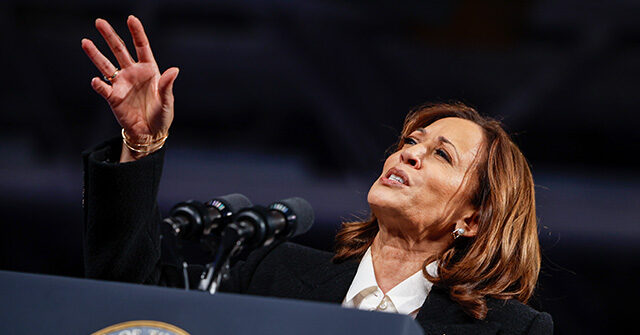Vice President Kamala Harris recently faced backlash over a speech delivered at a church service in North Carolina, where her remarks on faith amidst crisis sparked a wave of confusion and criticism. Speaking at the Koinonia Christian Center in Greenville, Harris attempted to address the impact of natural disasters, such as Hurricane Helene, on communities across several states, including North Carolina and Tennessee. Her comments, which aimed to highlight the trials of faith during turbulent times, included a convoluted phrasing that led many in attendance and online to feel bewildered by her message. As she described how difficult experiences can challenge individuals’ faith, her delivery was met with skepticism by viewers who perceived her statements as unclear.
Harris articulated, “In times of crisis, and we’re looking at the images of the aftermath of the hurricane… it is easy in these moments of crisis to sometimes question our faith.” This statement was met with mixed reactions, with several individuals on social media derisively comparing her words to a fortune cookie’s vague wisdom rather than a coherent message. Specifically, various posts on platforms such as X called her ability to articulate a clear thought into question. One user humorously suggested that Harris seemed like an amalgamation of a fortune cookie and a magic eight ball, while others lamented that her speeches often resemble disjointed phrases rather than substantive commentary.
The backlash to Harris’s remarks was swift, with many people echoing the sentiment that her speech was characterized by what has come to be referred to as “word salad,” a term used to describe jumbled, nonsensical language. This incident is not an isolated occurrence, as Harris has faced scrutiny for her speaking style on multiple occasions. For instance, in September, her comments at the Economic Club of Pittsburgh attracted criticism when she encouragingly mentioned the idea of being inspired, only to struggle to convey a clear message in doing so.
Her historical reliance on peculiar phrasing can be traced back to various events. One notable instance occurred in March 2022, when she repeatedly emphasized the “significance of the passage of time” during a speech. This repetitive phrasing left many observers scratching their heads, questioning not only the utility of her comments but the clarity of her overall message. In another instance, while on a diplomatic visit to Poland, Harris stumbled through her notes, resulting in confused statements regarding her location and the geopolitical topics at hand, highlighting a consistent pattern in her public speaking.
The tendency of Harris to falter in her speeches raises questions about her preparedness and delivery as a leading figure in the government. Critics argue that such perceived incompetence undermines the administration’s credibility and raises concerns about effective communication in leadership roles. Her approach to public speaking has prompted numerous social media users to express disdain and confusion, often using humor as a way to cope with what they see as an inability to communicate clearly under pressure.
In essence, while attempting to convey a message of hope and resilience in the face of disaster and community crisis, Kamala Harris inadvertently reinforced a narrative of ambiguity surrounding her public speaking. This most recent incident not only reignited discussions about her previous rhetorical missteps but also highlighted the broader implications of communication within political leadership. As the Vice President continues to navigate her role and the expectations that come with it, the challenge remains to foster clearer communication that resonates meaningfully with the public she seeks to inspire.

